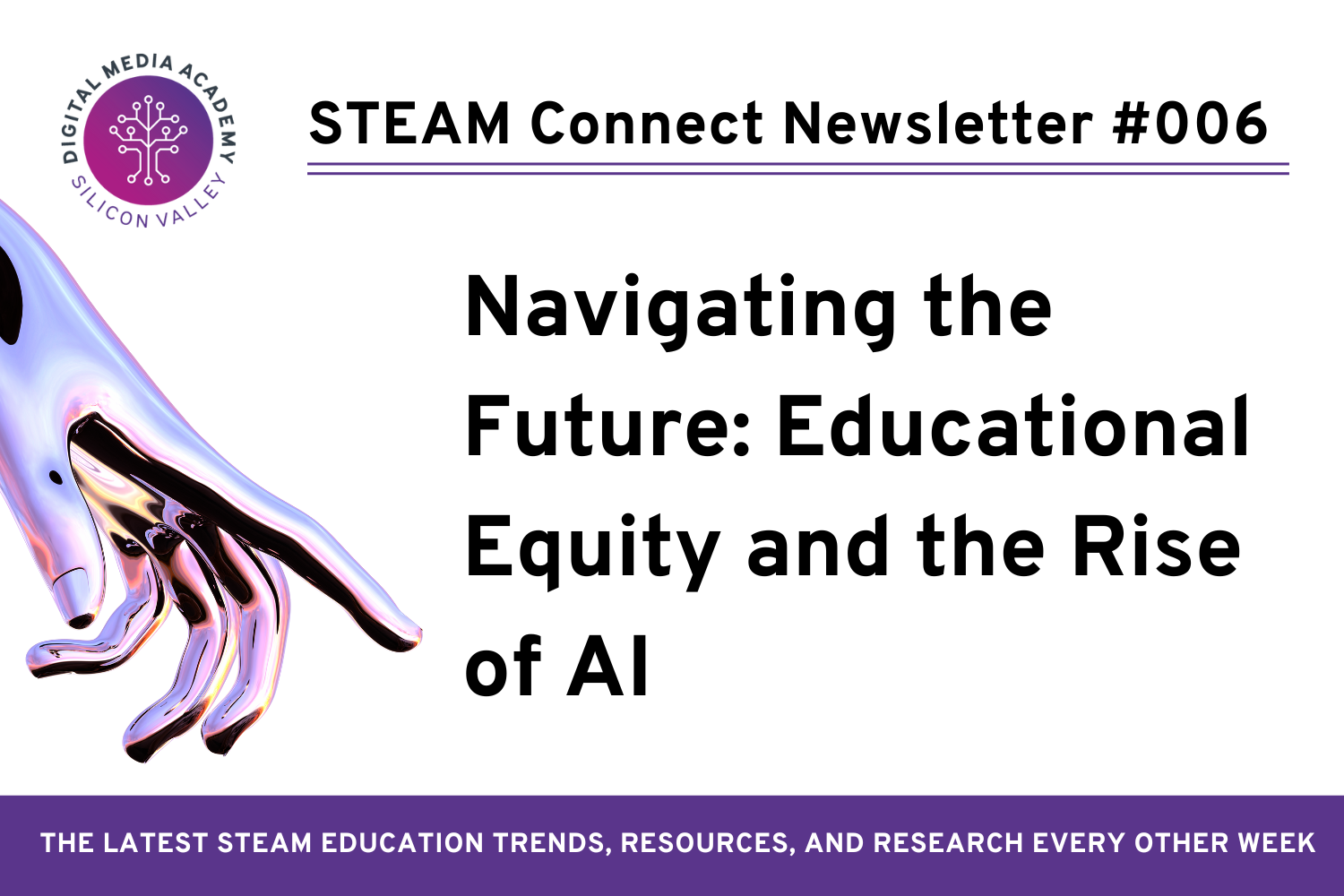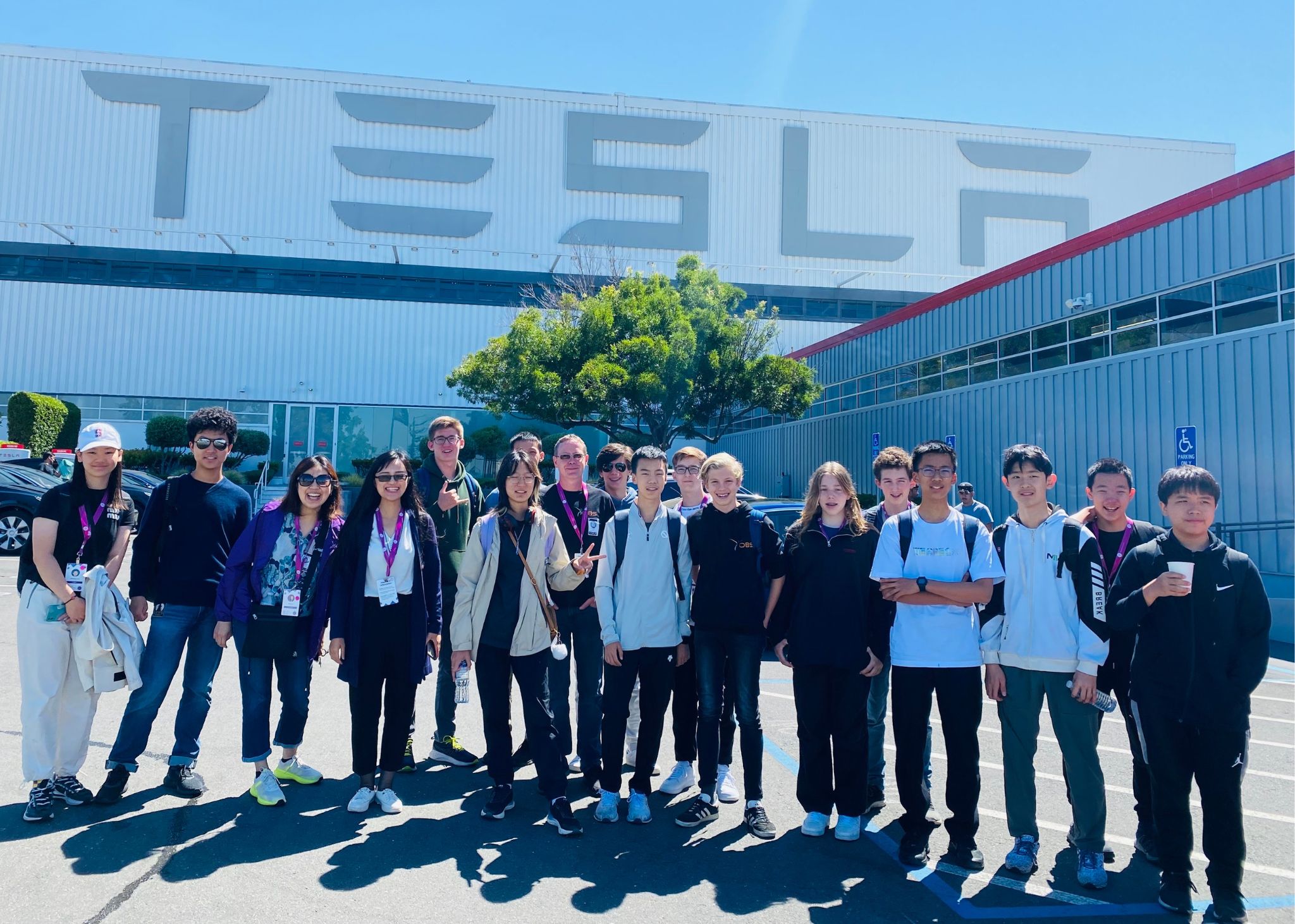The rapid rise of artificial intelligence (AI) and large language models (LLMs) presents both exciting possibilities and significant challenges for the future of education.
While these technologies hold immense potential to personalize learning and empower students, ensuring equitable access and fostering ethical understanding remain paramount.
This newsletter explores these crucial aspects and provides resources to guide your journey.
Let’s dive in 🤖
~ Sarah
Navigating the Future: Educational Equity and the Rise of AI
Equity Concerns for k-12 Educators
➟ Equitable Access to AI Tools:
One of the foremost challenges is ensuring equitable access to AI-powered tools and resources. Disparities in access to expensive AI technology and reliable internet connectivity can widen the opportunity gap, particularly for students from marginalized communities.
➟ Biases in AI Algorithms:
AI algorithms can reflect and amplify societal biases, leading to discriminatory outcomes in education. Whether it’s gender, race, socioeconomic status, or other factors, biases present in the data used to train AI models can manifest in the decisions and recommendations made by these systems. This poses a significant challenge in ensuring fairness and equity in educational contexts.
➟ AI Outputs and Student Identity:
The presence of bias in AI systems not only affects the fairness of educational outcomes but also has a profound impact on how students see themselves and their place in the world. When AI algorithms produce biased results or representations, they can reinforce harmful stereotypes and undermine students’ confidence and sense of belonging.
➟ Cultural Representation in AI Training:
Moreover, AI systems are frequently trained on datasets primarily composed of standard American English, resulting in AI outputs that may not accurately reflect the diverse cultural and linguistic backgrounds of many students. Without proper guidance, students may try to make their writing match AI output that they think is the “correct” way to express something, potentially homogenizing diverse writing styles and voices.
Ethical AI Education
1. Addressing the Digital Divide:
- Bridging the gap: Initiatives aimed at expanding access to technology and reliable internet connectivity are crucial for ensuring equitable access to AI tools. This involves programs like providing devices and subsidized internet plans for low-income families and investing in infrastructure improvements in underserved communities.
- Low-tech alternatives: Exploring alternative learning methods and resources that don’t rely heavily on AI technology can be beneficial for students who lack access to these tools. This could involve utilizing traditional classroom activities, open-source educational materials, or offline learning platforms.
2. Mitigating Bias in AI Implementation:
- Identifying biases: Critically analyzing the data used to train AI systems and recognizing potential biases is crucial. Students should be able to identify how these biases can influence AI outputs and outcomes.
- Human oversight and intervention: Implementing human oversight and intervention mechanisms is essential to ensure fairness and prevent biased outcomes. Educators can review AI-generated recommendations and make informed decisions based on their professional judgment and knowledge of individual students.
- Video Resource:
3. Fostering Inclusive Learning Environments:
- Culturally responsive teaching: Integrating culturally responsive teaching practices into curriculum design and instruction is crucial for creating inclusive learning environments that value and celebrate diverse student identities and backgrounds. This involves incorporating diverse perspectives and experiences into learning materials and activities.
- Promoting critical thinking and self-awareness: Encouraging students to critically analyze information generated by AI and develop their perspectives is essential. This fosters self-awareness and empowers them to challenge stereotypes and biases encountered in technology and society.
4. Building AI Digital Literacy:
- Demystifying AI: Students need a basic understanding of how AI works, including its core concepts like machine learning, algorithms, and data. They also need to understand the potential benefits and limitations of AI. This includes recognizing its ability to automate tasks, personalize learning, and provide new insights, while also acknowledging its limitations in areas like creativity, critical thinking, and ethical decision-making. This empowers them to ask informed questions and challenge assumptions about AI capabilities.
- Developing Critical Thinking Skills: Students need to be able to critically evaluate information generated by AI, questioning its source, accuracy, and potential biases. This involves fact-checking, verifying data, seeking diverse perspectives, and identifying manipulation and misinformation. AI can be used to create deepfakes or manipulate information. Equipping students with the skills to identify these tactics and critically analyze information is essential for responsible digital citizenship.
AI Resources
- code.org/ai
- Hello Ruby
- The AI Education Project: TeachAI
- Teachable Machine
- Machine Learning for Kids
- Most Likely Machine: Wise up to algorithms
- AI4ALL Open Learning
Looking Ahead
As educators, it’s also our responsibility to guide students in navigating the ethical dimensions of STEAM, particularly as advancements in technologies like Artificial Intelligence (AI) raise new ethical dilemmas.
Just this week Google’s Gemini chatbot generated controversy when it produced historically inaccurate images, raising concerns about representation and bias in AI-generated content. While the intention behind the chatbot’s design may have been to promote diversity and inclusion, the result was far from ideal.
This incident highlights the importance of integrating ethical AI education into our curriculum, empowering students to critically engage with AI technologies and advocate for responsible practices.
Incorporating real-world examples like this into our discussions about ethics and technology provides valuable learning opportunities for students. By examining the impact of AI on society and considering the ethical responsibilities that come with its development and use, we can empower students to become thoughtful and ethical stewards of technology.
Thank you for your dedication to promoting equity and ethics in education.
– The DMA Team
There are 3 ways we can help your school with your STEAM Programming:
🌍 Bring Students to Global Innovation Race on-campus at Stanford University (July 17-27th)
Fuel your students’ passion for technology and innovation while future-proofing their skills with the summer experience of a lifetime! Global Innovation Race is an international call to action for student groups (aged 13-17) across the globe to design solutions that will shape the future. Space is limited. Learn more here!
🌐 Join Leading STEAM Schools in the World
Developed by Stanford-affiliated educators and researchers, Leading STEAM Schools in the World (LSSW) Membership helps schools and educators meet the ever-evolving needs of 21st-century learners. Membership is customizable, combining comprehensive curriculum, tailored consultation, and a supportive global community of like-minded schools.
💡 Become a STEAM Innovator Accredited School
Our STEAM Innovator School Accreditation recognizes and promotes excellence in STEAM education worldwide while empowering educators and schools to achieve the highest standards of quality and innovation in STEAM curriculum, instruction, and assessment.























